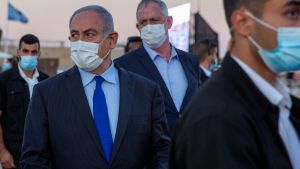How Israeli-Palestinian Peace Continues to Elude Us 75 Years Later

Public opinion signals the conflict is in dire need of stronger leadership and more practical policies.
On March 26, 1979, President Jimmy Carter rang in the signing of the Egyptian-Israeli Peace Treaty by saying, “Peace has one thing in common with its enemy, with the fiend it battles, with war; peace is active, not passive; peace is doing, not waiting; peace is aggressive – attacking; peace plans its strategy and encircles the enemy; peace marshals its forces and storms the gates; peace gathers its weapons and pierces the defense; peace, like war, is waged.” Standing alongside Egyptian President Anwar al-Sadat and Israeli Prime Minister Menahem Begin, the future of both Arab-Israeli and Israeli-Palestinian relations appeared bright.
Yet 44 years later, as the 75th anniversary of the Israeli-Palestinian conflict rapidly approaches, Israeli-Palestinian relations have entered another period of heightened tensions. After decades of peace talks, numerous leaders involved, countless lives lost, and tremendous amounts of money spent, no one has found a resolution. Public opinion hints as to why peace has been so elusive.
Unpopular Leaders
Public opinion surveys show that key leaders in power and the policies they espouse are widely unpopular. For leaders to broker a peace deal that lasts, public buy-in is required. Unfortunately, this type of public support is unlikely today given the fact that Palestinian leadership is likely on the verge of change and Israelis’ trust in their government is severely eroded.
Beginning in Palestine, President Mahmoud Abbas finds himself in a precarious position. A March 2023 poll conducted by the Palestinian Center for Policy and Survey Research revealed an overwhelming majority of Palestinians (77%) would like to see him resign from office. Abbas, who has been in power for almost two decades, faces not only a legitimacy crisis, but declining health as well.
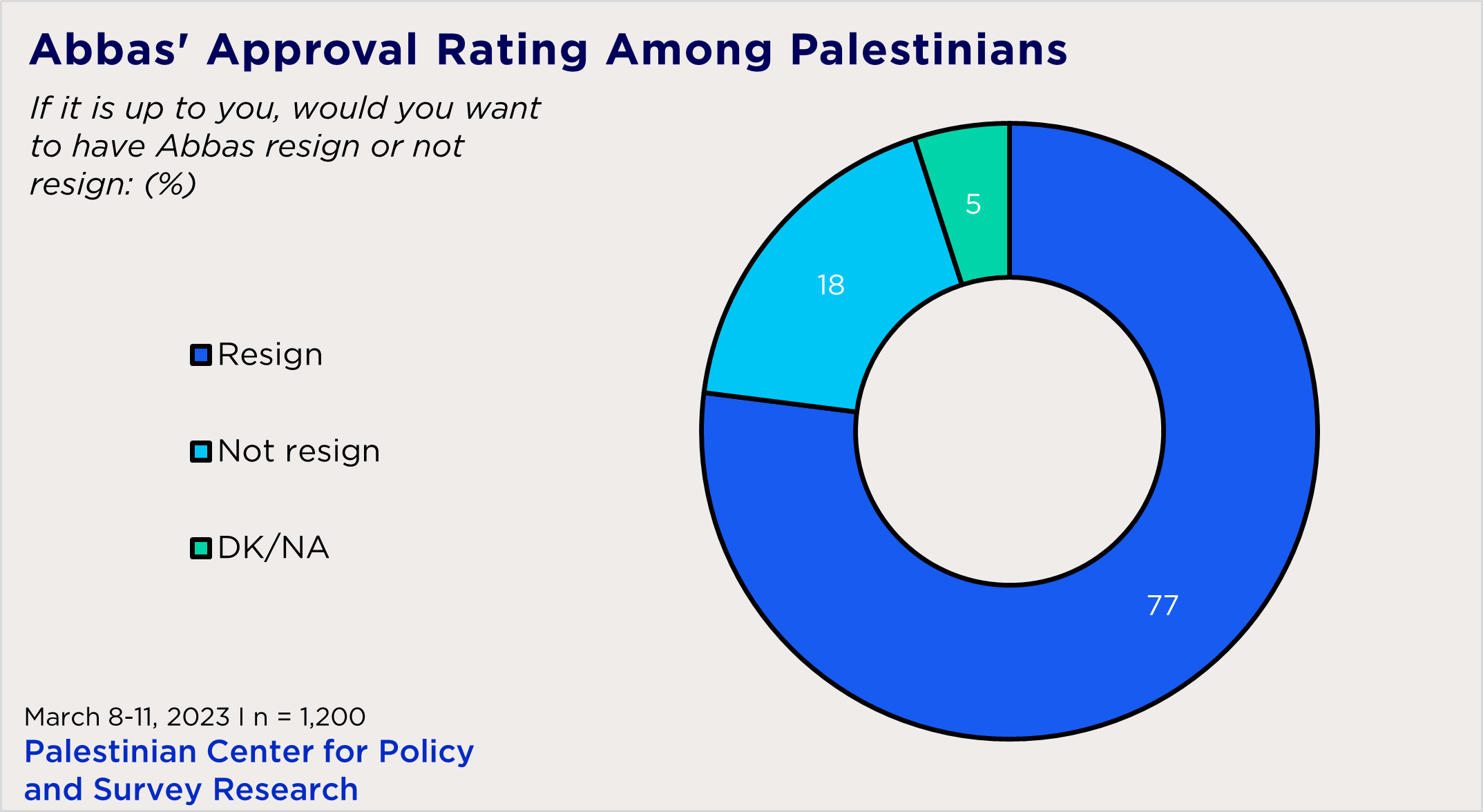
Across the border in Israel, Prime Minister Benjamin Netanyahu is experiencing a legitimacy crisis of his own. After returning to power at the end of 2022 leading the most right-wing government in Israel’s history, Netanyahu’s troubles are mostly driven by opposition to his efforts to pass radical judicial reform that would significantly limit checks and balances on his government’s power. Former senior government officials have called for his resignation, mass street protests erupted throughout the country, global tech companies withdrew significant capital, and some military reservists refused to report for duty. Nearly half (47%) of Israelis define the country’s overall situation as either bad or very bad according to a February 2023 Israeli Voice Index—the poorest such rating since 2007. It is likely these recent events have only worsened Israelis’ distrust in the institution of government, which in 2022 stood at 77 percent based on the Israeli Democracy Index.
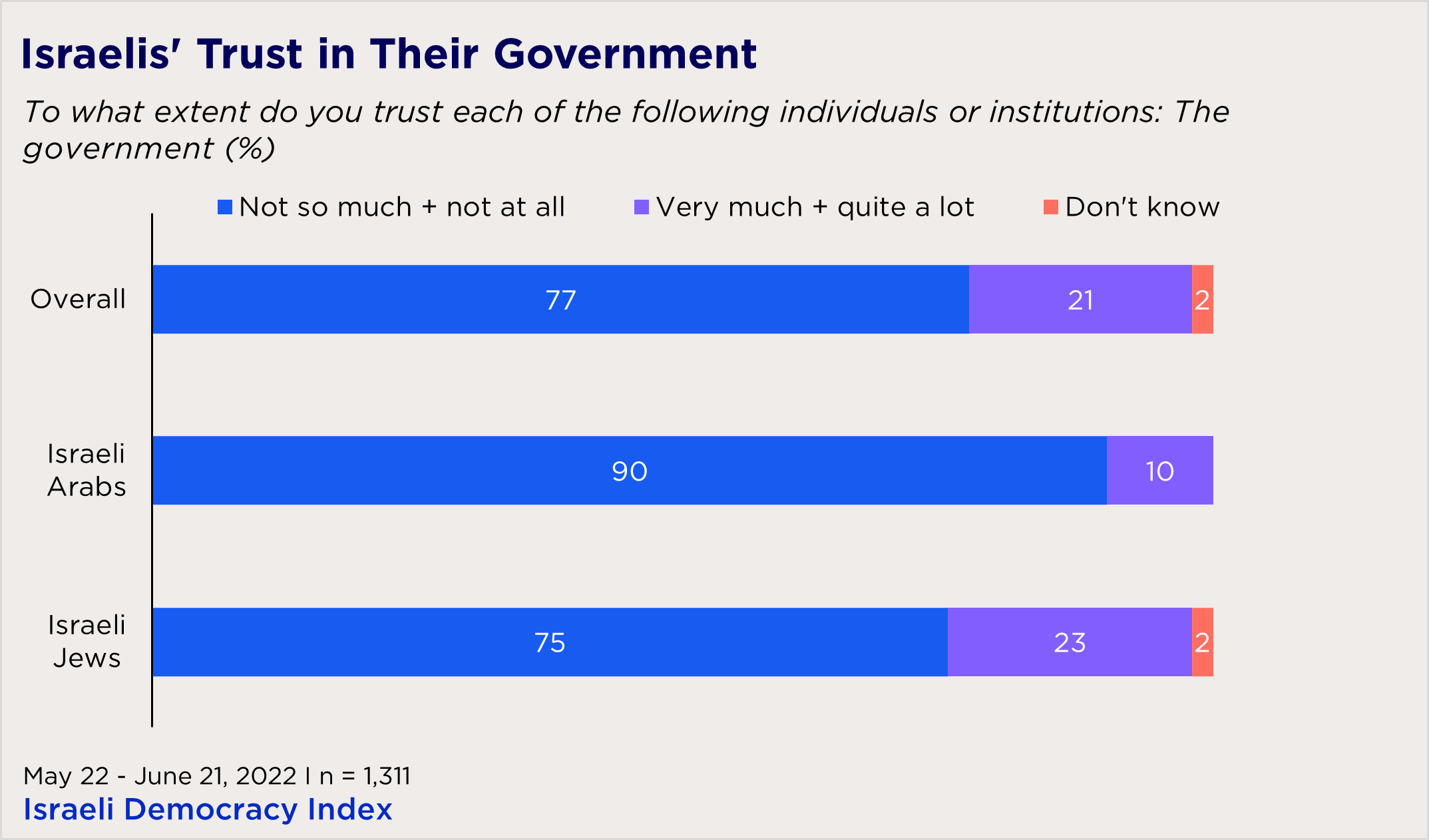
Unpopular Policies
Israelis and Palestinians not only have very little confidence in their leaders, but very little appetite for their policies. Take for instance the Abraham Accords, a series of joint-normalization agreements between Arab countries and Israel that Prime Minister Netanyahu has long supported. Netanyahu not only outlined a goal of expanding the Accords as one of his main foreign policy objectives during his 2022 inauguration speech, but he also highlighted it in a recent interview with CNN, stating: “I forged four historic peace agreements, the Abraham Accords, which is twice the number of peace agreements that all my predecessors in 70 years got combined. … When effectively the Arab-Israeli conflict [comes] to an end, I think we’ll circle back to the Palestinians and get a workable peace.”
Despite his and other leaders’ repeated efforts to tout the historic nature of these agreements, their potential for advancing Israeli-Palestinian relations in the eyes of the public is proving to be limited. Even policies that once offered a glimmer of hope for peaceful relations, like the two-state solution, no longer seem realistic. A December 2022 Palestine/Israel Pulse joint poll found that only 33 percent of Palestinians and 39 percent of all Israelis, Jews, and Arabs combined, support a two-state solution. In addition, a plurality of Palestinians, Israeli Jews, and Israeli Arabs do not believe the Abraham Accords will have any effect on chances to solve the Israeli-Palestinian conflict.
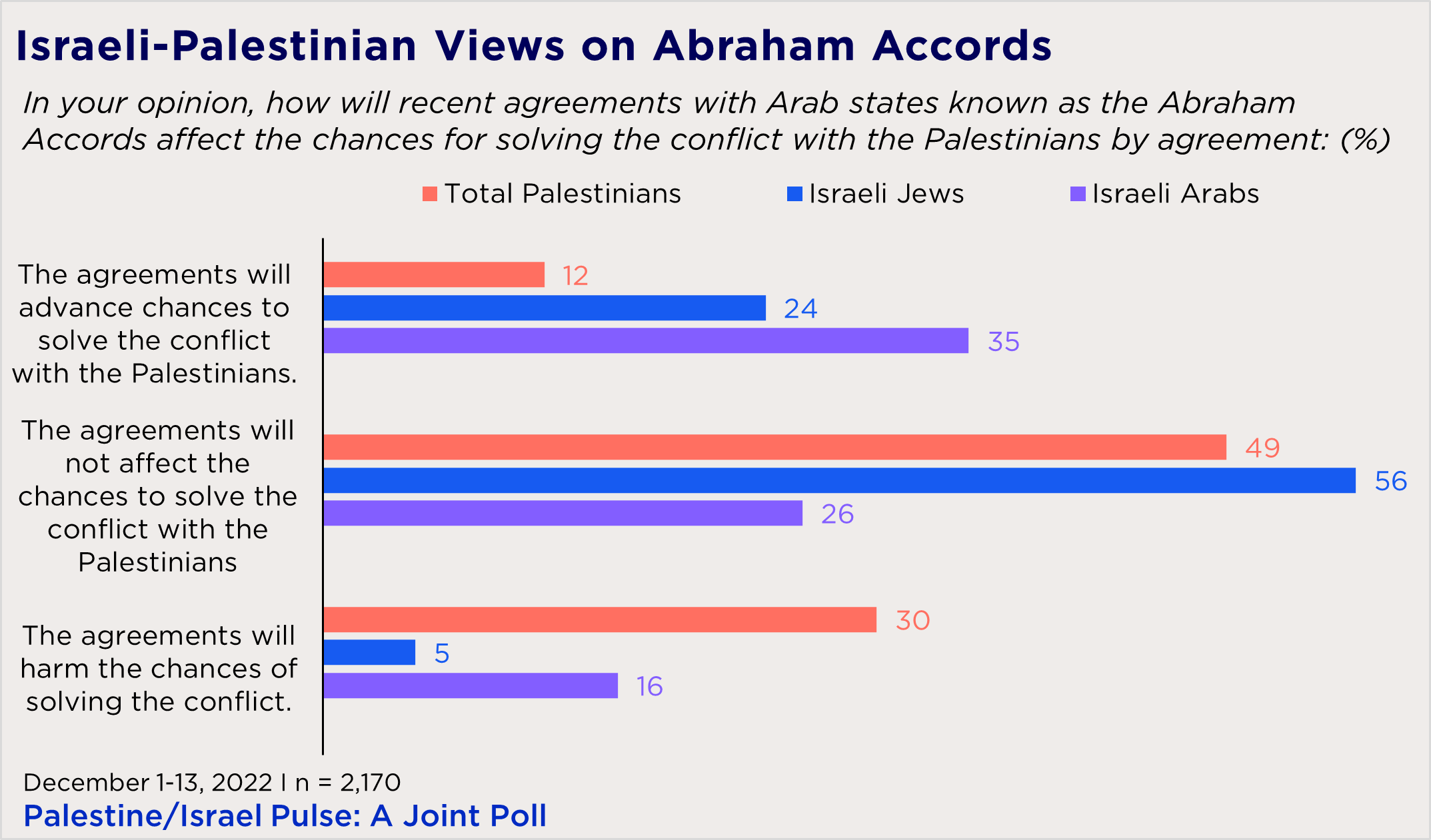
Hope for the Future
Public support for the leaders and policies tasked with improving Israeli-Palestinian relations remains low and changes to the status quo in the near term seem unlikely. However, there may be hope when looking towards the youth in both Israel and Palestine. In Israel, more than a third of the population is below the age of 20, while in Palestine, 30% of the population is between the ages of 15-29. In both cases, these youth who make up a considerable portion of both populations may hold the potential to upend the status quo entirely. For example, a 2020 study of Israelis and Palestinians ages 15-21 commissioned by the Alliance for Middle East Peace and the U.S. Institute of Peace discovered a majority of respondents on both sides agree that “peace is possible between the two peoples, and the conflict is mostly about leaders fighting for their own interests.” This finding keeps the door open to progress moving forward.
Although those currently in power and the policies they espouse are widely unpopular, new leaders may be able to forge a new path forward as current youth move into future positions of power and influence.


Related Content
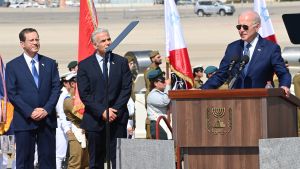 Public Opinion
Public Opinion
As attention returns to Gaza, majorities view a breakthrough in negotiations as unlikely in the foreseeable future.
 Public Opinion
Public Opinion
Polling finds that Palestinians in the West Bank and Gaza have different preferences regarding a solution to the conflict with Israel.
 Public Opinion
Public Opinion
After violent conflict between Israel and Hamas, a new Israeli governing coalition, and Palestinian repression, what would a peaceful future look like?
